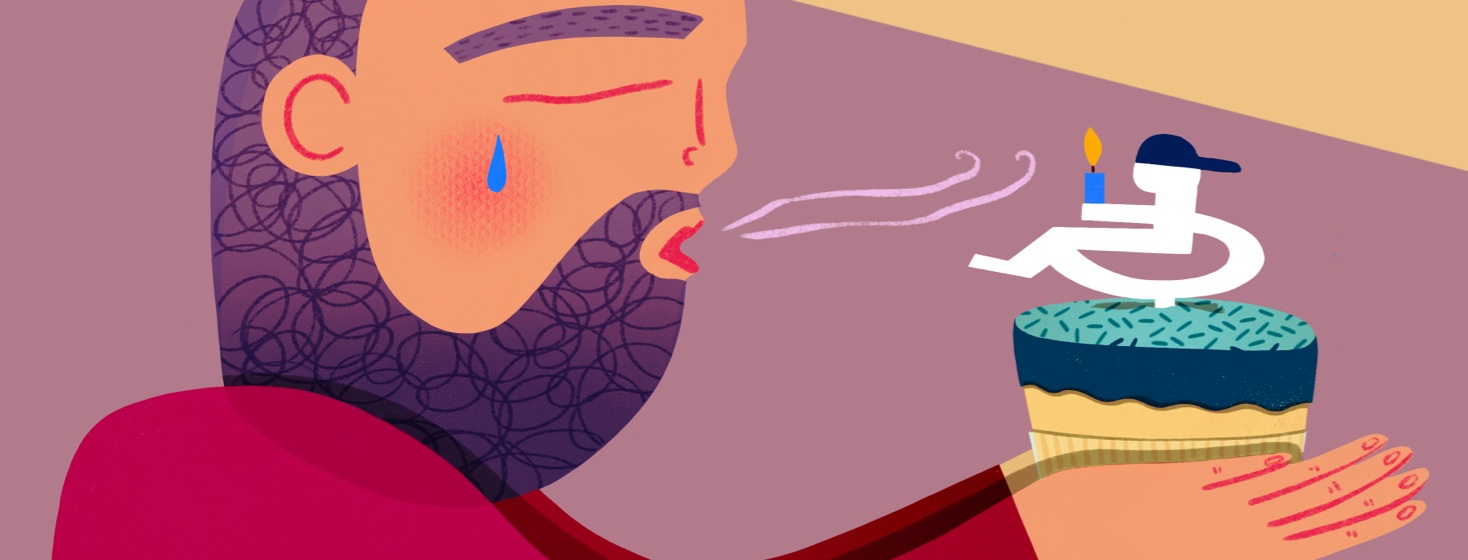Coming to Terms With Disability
Recently, I had a day where, for various reasons, I had to explain that I am technically disabled to several people. Each time I did so, I realized that my voice became lower, my shoulders drooped, and I couldn’t look them in the eyes. Upon having to say it, I wanted to be anywhere in the world but where I was at those moments. Despite being disabled for nearly nine years, as of this writing, I am still struggling to come to grips with it.
Finished in a flash
I was labeled disabled at the age of 35, and it did not happen willingly. This did not happen on my terms. I went to work one day, had to leave early, and was never able to return. A doctor put his hand on my shoulder and said “I’m sorry, you fought very hard, but it’s time”. Then the career I spent my life working towards was gone.
Despite it being notoriously difficult to get approved for disability, my issues, even with my young age, were enough to land me there on the first attempt. With my career gone, the dramatic decrease in income wrecked my life, forcing me to sell my house, change hobbies and friendships, and uproot just about every aspect of my life. It wasn’t supposed to be this way. Even when I was diagnosed, I never thought it would happen this way, not that young.
Disability takes so much
Obviously, the first impact of being disabled is the change in income, which was incredibly significant for me. It impacts every part of your life, including your relationships with those around you.
Becoming disabled also hurts your sense of pride and accomplishment. Those are the things that have probably impacted me the most. I was a “go-getter”, my career was my life. I always figured it was everything to me, and then it was gone and it feels like I have nothing and no one.
Appearances are impactful
My issues are abundant, though not easily noticed. I’m supposed to use a cane but rarely do. I get around by the skin of my teeth, relying on wall walking and properly planning my routes in my head. I feel awful inside, however, on the outside, you would have no idea. Maybe by talking to me for a bit, you might notice me being forgetful, or slurring my speech. You’d be more likely to think I’ve had too many drinks than think I was disabled from an incurable neurological disease. I work hard at appearing like everyone else, which makes it difficult when I have to explain that I’m disabled. The numerous looks of shock I’ve seen might be annoying a bit if I didn’t feel that same sense of shock every time I have to mention it. Even I look in the mirror sometimes and think, “How is this possible?”
Accepting my disability with MS: It’s not others, it’s me
I think a lot of stories about being disabled could easily gripe about how others treat us when they learn it (and believe me, I’ve had my share of awful doubters). At the end of the day though, the person that’s shocked the most is me. Nine years later, I still struggle to come to terms with being disabled. I’ve worked at it, I’ve gone to therapy (and I highly recommend that), but I still struggle. I still grieve the life I had before I was disabled. That’s not to say my life is awful, no one should be sorry for me, but I still sometimes mourn the life that was.
There is definitely life after disability, but that’s a different story for later!
This or That
Have you applied for disability?
Thanks so much for reading and feel free to share! As always, I would love to hear about your experiences in the comments below!
Devin
My Other Articles On MultipleSclerosis.net - Follow Me On Facebook - Follow Me On Instagram

Join the conversation